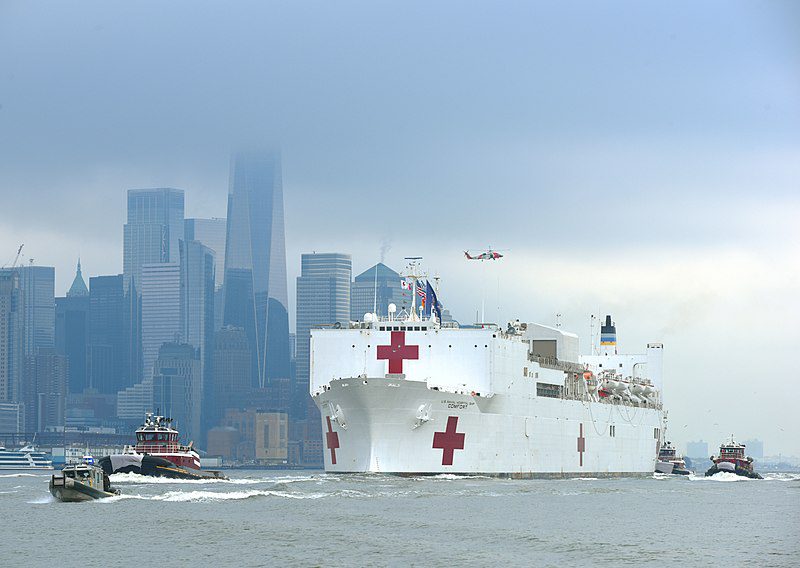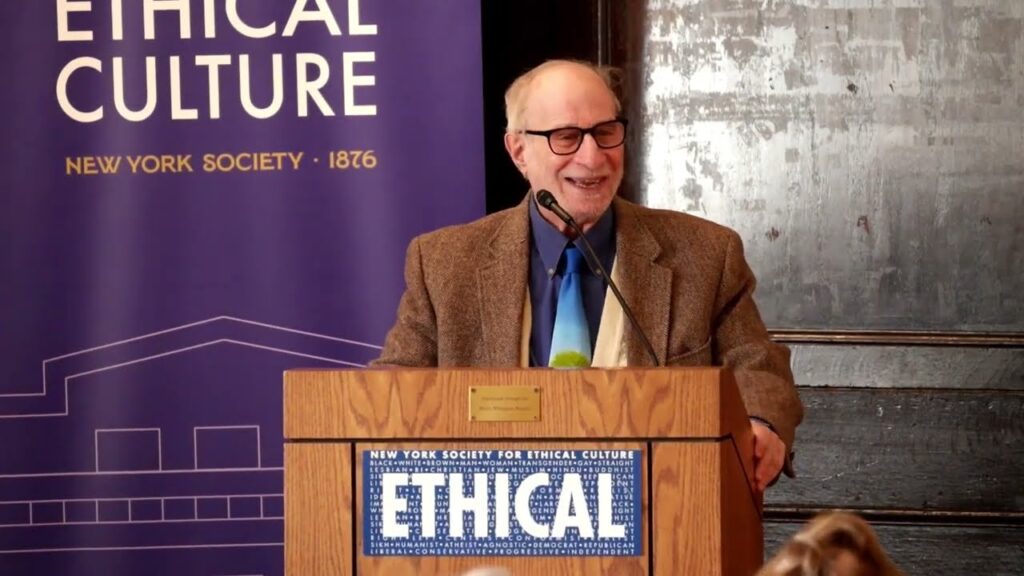
By Leader Dr. Richard Koral
In the classic 1951 science fiction film “The Day the Earth Stood Still,” a super advanced and powerful alien visits Earth and scares the entire global population into working together cooperatively. The film came out just as the Cold War was getting frosty and the carnage of two World Wars remained fresh wounds on the public psyche. Indeed, what could get humans to ever stop fighting each other? Reason couldn’t succeed, nor could appeals to conscience. But apparently a demonstration of overwhelming power by a common adversary could do it. The alien stopped all the electricity in the world so that nothing could function for a brief period of time. That fright finally got people’s attention.
As the Covid-19 pandemic has passed the stunning toll of 100,000 victims in the US alone and over 350,000 worldwide, it looks as if humanity is facing a common enemy if ever there was one. If anything, this should be the occasion to step up cooperation in order to meet such a global threat. So far, the response has been mixed. On the one hand, there are joint efforts being conducted worldwide to find a vaccine and a cure. But there are other forms of cooperation that this challenge should inspire and encourage us to adopt. Whether we will step up to that challenge is an open question.
The lockdowns have slowed economic activity the world over and societies are in fear of economic collapse. But the impact on the environment has incidentally offered everyone a demonstration of the potential benefits of a more balanced industrial economy. We have seen a huge reduction in smog and pollution the world over. Skies are clearing up, bringing visibility and breathability that people haven’t enjoyed in living memory. Rivers are running cleaner.
In normal times, we could expect a rise in crime when stores are closed and streets are empty. In times of disaster, the police will anticipate looters and close off whole regions. Paradoxically, though, crime came way down in today’s pandemic era. There are double-digit drops in major crimes such as murder, rape, burglary, and drug-dealing. This happened in a time when crime rates were already as low as ever recorded.
There are fewer examples of people using the pandemic to exacerbate division and hostility. The Disparager in Chief and his followers have been the most visible exceptions. A crisis offers a president an opportunity to rally the population and lead a national, and indeed an international, effort to overcome adversity. It is unfortunate that our president has not been able to summon the vision or character to be that kind of leader.
There are lessons to be learned from this experience. We are seeing how environmental degradation can be reversed with a lighter industrial footprint. We see that we can deter many people from anti-social behavior by enlisting them in important social tasks and community engagement. But we also have seen how structural inequality of wealth and income left so many people of color more affected by the virus and more vulnerable to economic disruption. Importantly, we learned that many of the poorest — delivery people, health aides, stock personnel, food service workers, etc. — were, in fact, the most “essential” members of the system. Their inclusion and support must be part of the plan for restarting the economy.
For a few months, the earth stood still. Big demonstration projects must not go wasted. Let’s learn the lessons of 2020 — that we are one integrated and interdependent community and that emergency preparation must include an economy that serves and supports everyone.







